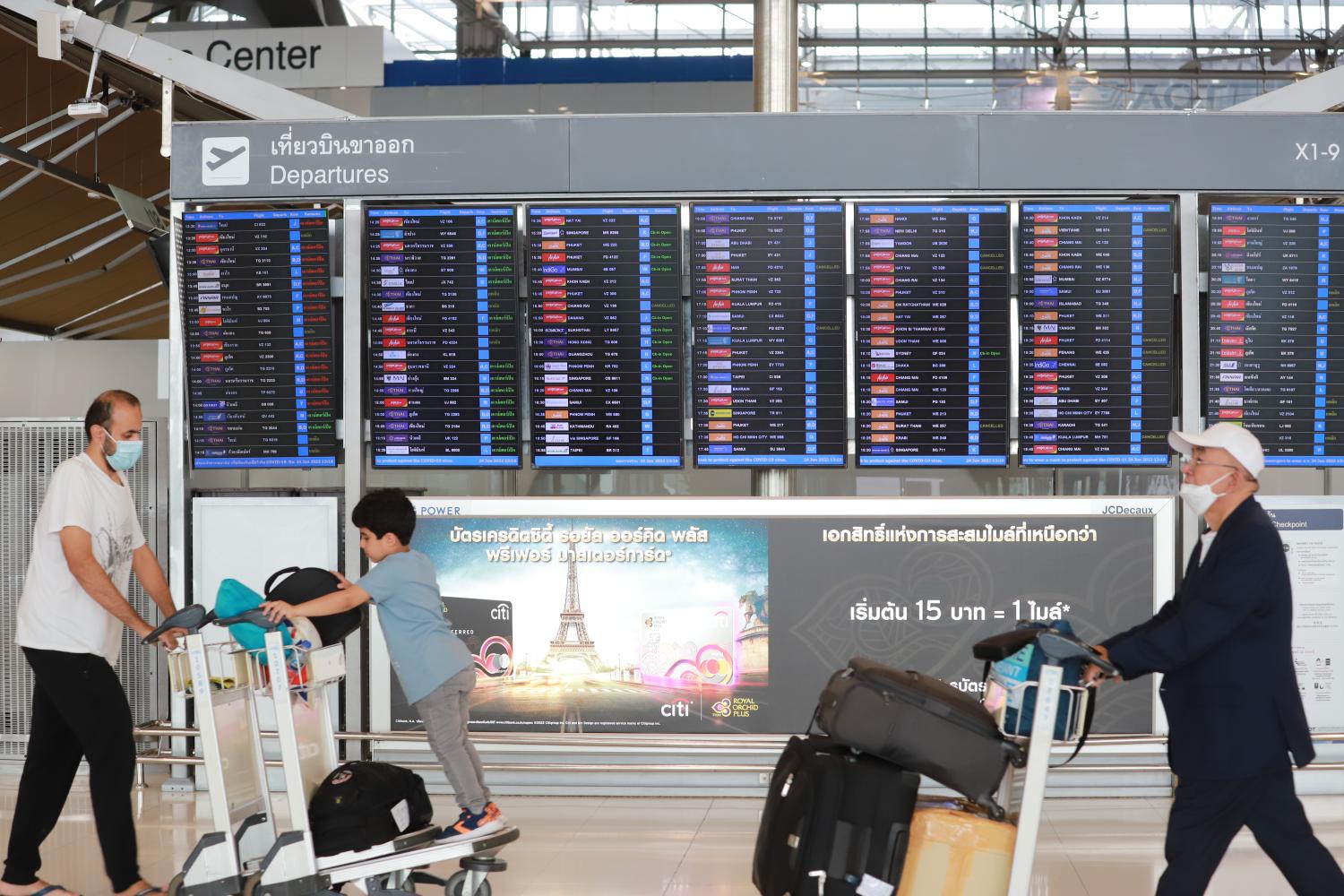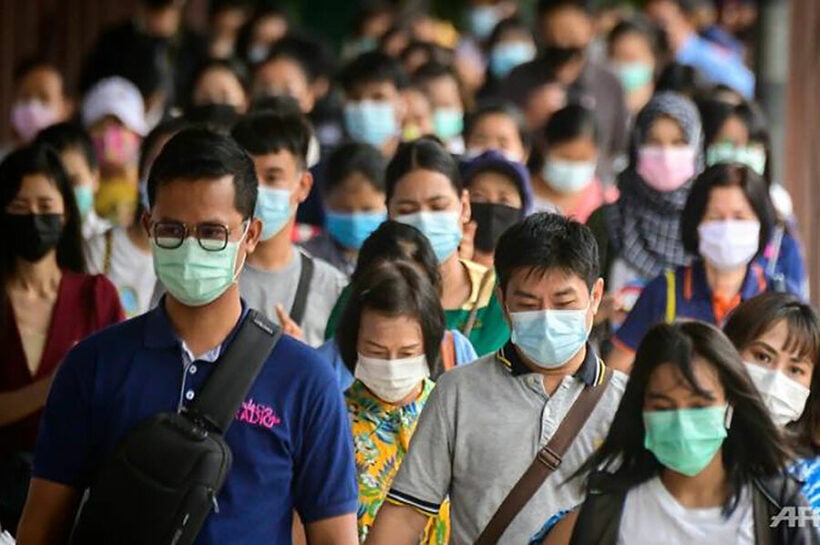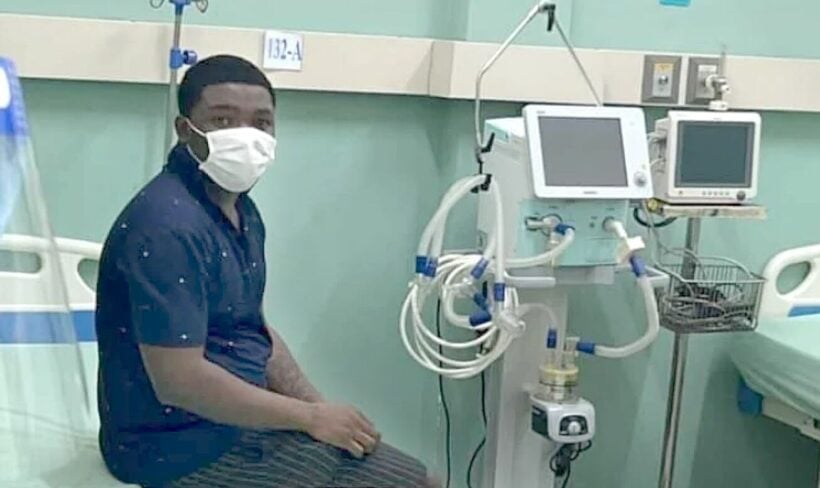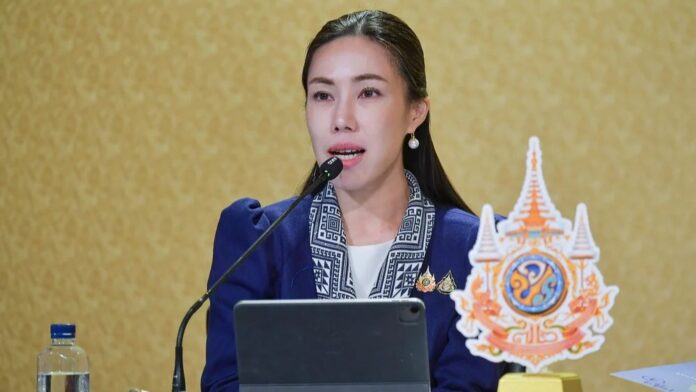Every now and then there are questions being raised whether Thailand may be heading closer to what Sri Lanka is facing these days or not, but these questions are being brushed aside by all sides as Thailand continues to have a healthy reserves and economy seems to be on an uptick. |
Sri Lanka, which has been undergoing an economic meltdown due to gross mismanagement of the country, has become a poster child of how not to govern a country in the current volatile market conditions.
Sri Lanka, a country of 22 million people has seen its foreign reserves deplete to the level of barley $50 million in May this year from nearly US$ 10 billion in 2018. The country's politician (the Rajapaksa brother) were the president, and the Prime Minister. The duo came to power on the campaign of offering handouts and lowering taxes, leaving the country on the brink of collapse and the duo being forced out of their office.
"Thailand is not going to be like Sri Lanka for sure," 2014 coup leader and incumbent Prime Minister Prayut Chan-ocha said in the parliament during the no-confidence debate last week. He made the statement after many opposition parties who grilled the government of Prayut over its mismanagement of the economy and the habit of handouts to the people to keep his popularity.
Yesterday Gen. Prayut proudly said that he has spent nearly 1 trillion Baht in various subsidies over the past 2-years since Covid-19 outbreak.
With the household debt reaching levels that could make it unstainable in the long term. Thailand household debt currently is the 11th highest in the world with the data as of end of Q1 suggesting that Thailand's household debt stood at a staggering 89.2% to the gross domestic product (GDP).
The heavy household debt of 14.65 trillion Baht, coupled with the outflow of funds as Thailand continues to keep its policy rates low to continue to help the economy recover, has prompted a gradual outflow of funds.
The Bank of Thailand (BoT) has hinted that it was looking to raise rates as it cannot continue to keep the rates at the current 0.50% level for too long. The BoT's Monetary Policy Committee (MPC) is set to meet on August 10 to decide on a possible 50 basis points (0.50%) raise that could trigger the start of many more rate rises in the near future.
Thailand needs to raise rates to stem the runaway inflation that is running at 14-year high at 7.66% as of June. The lower fuel cost in the month of July may help ease some of the inflationary pressure but the difference may not be that big.
Table below shows economists view of the rate hikes around the world.
Although Thailand is still considered quite far from Sri Lanka's situation, the fact remains that Thailand's economic fundamentals are still relatively stronger, including banking, foreign exchange, and international reserves, and all this helps the country to be able to be in a stronger financial position than Sri Lanka.
Recently, Sommai Phasee, former Minister of Finance in the government of Gen. Prayut, raised his concern over the issue of the government's ability to cope with the worsening situation.
He stated that he was not trying to imply that Thailand would end up being like Sri Lanka, but the risk remains.
"When you get to know what I have expressed here, please understand precisely that I am not saying that Thailand will have problems like Sri Lanka, but please be aware that the behavior of Thai politicians running the country at the moment is something that will cause damage like Sri Lanka in near the future," he said.
He added that there are still many risks that Thailand was neglecting while only pretending to care.
The government of Prayut that has reportedly borrowed heavily in the 8-years since the 2014 coup, has debt obligations to pay that would last generations to come.
During the parliamentary debate, opposition MPs accused Prayut administration of piling up debts in 8-years that was more than the 80+ years of democratic rule that Thailand has been under since the 1932 revolution that took Thailand into constitutional monarchy.
All this has prompted many to start questioning the viability of the handouts and the sustainability of the country's financial standing.
Former Prime Minister Thaksin Shinawatra has also given his 2 cents on the issue during a recent talk show.
Thaksin, who lives in self exile in Dubai (UAE), warned that the situation taking place in Sri Lanka could possibly happen in Thailand because 'we are also such a borrower.'
 Thaksin said that Thailand, in the same way as Sri Lanka, has borrowed money to cover the budget because the budget deficit is US$ 20 billion for the 3rd year running. The government he said has been borrowing for various projects while the productivity is not enough, for that, they are unable to generate taxable income, and when that is the case, the government is not capable of paying off the debt.
Thaksin said that Thailand, in the same way as Sri Lanka, has borrowed money to cover the budget because the budget deficit is US$ 20 billion for the 3rd year running. The government he said has been borrowing for various projects while the productivity is not enough, for that, they are unable to generate taxable income, and when that is the case, the government is not capable of paying off the debt."It's like a company that is constantly losing money, and borrowing until the credit is worn out, and eventually goes bankrupt." Thaksin said.
 Meanwhile other economists have a different take, Dr. Somjai Phagaphavivat, an independent political and economic analyst, came out to say that the economic situation in Thailand is far from the situation in Sri Lanka due to the high reserves in the country.
Meanwhile other economists have a different take, Dr. Somjai Phagaphavivat, an independent political and economic analyst, came out to say that the economic situation in Thailand is far from the situation in Sri Lanka due to the high reserves in the country."We have over 2 trillion Baht in reserves. It's about 5 times more than short-term debt, so it's a big difference," he said.
Somjai also said the situation in Sri Lanka was worse than in Thailand as foreign exchange reserves were burned on oil purchases and coronavirus support schemes.
Asst. Prof. Dr. Anusorn Thammajai, a former member of the Public Debt Policy and Supervision Committee Ministry of Finance, has also come out to say that the Thai economy is still at low risk even though Thailand has had a current account deficit for 2 consecutive years.
As Thailand starts to open up, foreign tourism income will reduce the current account deficit and should turn into a positive by the end of the year, he claimed.
Laos on the Brink
Sri Lanka may be a little bit of a far for Thailand and investments into Sri Lanka by Thai companies may be limited but Laos, a country of just 7 million people, is on the brink of crisis as it struggles to pay billions of dollars to its creditors.
The World Bank estimates that Laos needs nearly $1.3 billion in debt payment obligations up until 2025. Surprisingly Laos' foreign exchange reserves are about the same at $1.3 billion, which has prompted many credit rating agencies to come out to warn of a possible debt default for the $20 billion economy of Laos.
The country's problems, many economists warn could trigger more problems for Thailand than the problems Thailand faces from collapse of Sri Lanka.
Although Thailand is yet to be anywhere near where Sri Lanka's problems are, Thailand cannot stay complacent or ignore the problems that its neighbours may be facing.


















